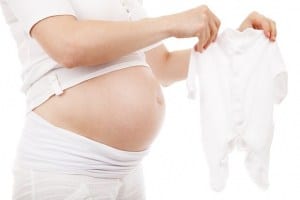Success with a prior IVF cycle does increase the chance for a baby if IVF is repeated. As in all medical procedures, there are advantages and disadvantages to having a medical procedure. This article will outline the pros and cons for a repeat IVF cycle.
 Advantages with Baby #2
Advantages with Baby #2
- Been There … Done That
Part of the anxiety a woman experiences with fertility treatment, particularly IVF, is the unknown, i.e. concern over medication side effects, self administering injections, the egg retrieval, and, ultimately, whether she will conceive. Having undergone IVF, a woman may, though not always, be more comfortable during the process. Whether stress reduction equates to a higher pregnancy rate is a topic of considerable debate without a definitive conclusion. Nevertheless, reduced stress on a woman during an IVF cycle results in her improved quality of life and is certainly the goal.
- Higher Pregnancy Rate
Studies have demonstrated a woman experiences a higher pregnancy rate with IVF cycle if she has successfully conceived using IVF in the past. Another advantage is the physician and patient can review the prior cycle in an attempt to duplicate decisions that were beneficial and exclude those that were not of value. While a pregnancy is of no guarantee, the statistical improvement can comfort a patient with the decision to repeat an IVF cycle.
- New Advances in IVF
Possibly unavailable the last time a woman underwent IVF, one of the groundbreaking achievements is complete chromosome screening of the embryo prior to implantation. Preimplantation Genetic Screening (PGS) involves the removal of several cells of the blastocyst embryo (on day 5 of development) to determine whether all chromosomes of the embryo are normal. This testing offers a dramatic improvement in life birth rate and reduction in miscarriage as well as the ability to reduce the risk of multiple gestation by transferring only one chromosomally normal embryo.
 Disadvantages with Baby #2
Disadvantages with Baby #2
- Expectations
The expectations for a repeat IVF cycle may be unrealistic depending upon the individual circumstances. As mentioned, success in a prior IVF cycle does not guarantee the same number of eggs retrieved, embryos developed, or a pregnancy. A different outcome than expected is more likely as the duration from the prior IVF cycle increases. This is because ovarian aging influences the number of eggs retrieved from a woman with IVF, i.e. as a woman ages she continues to decrease her number of eggs to due natural biology.
- This time it’s for your child.
From my blog on “7 Reasons Why Secondary Infertility Is So Emotionally Challenging” When a woman (or couple) decides to have a first child, they are often seeking personal fulfillment, creation of a family, enhancement of a loving bond, along with the joy of brining life into the world and rearing the child. Primary infertility disrupts this life’s plan and creates powerful feeling including inadequacy, vulnerability, overwhelm, as well as potential disruption of relationships. Once there is an existing child, the decision to grow the family, in addition to the above reasons, often stems from the profound desire to provide the child a sibling. Consequently, while the psychological focus of primary infertility is on the woman or couple, secondary infertility is often about the needs of the living child. Parents often describe loving their child more than themselves. So, secondary infertility is devastating since it deprives and disappoints their existing child.
- Be careful what you ask for.
An area of considerable importance with any fertility treatment, the risk of a multiple gestation is a significant concern for physicians and patients. Multiple births from fertility treatment continue to steadily increase resulting in pregnant women and newborns experience greater health problems. Contrary to public perception, IUI cycles contribute approximately twice the percentage of multiple births compared to IVF. Still, this complication risk should always be considered and can be greatly reduced by elective single embryo transfer.
This article was originally posted on www.BeyondInfertility.com where you can see more articles on expecting/parenting after infertility.






